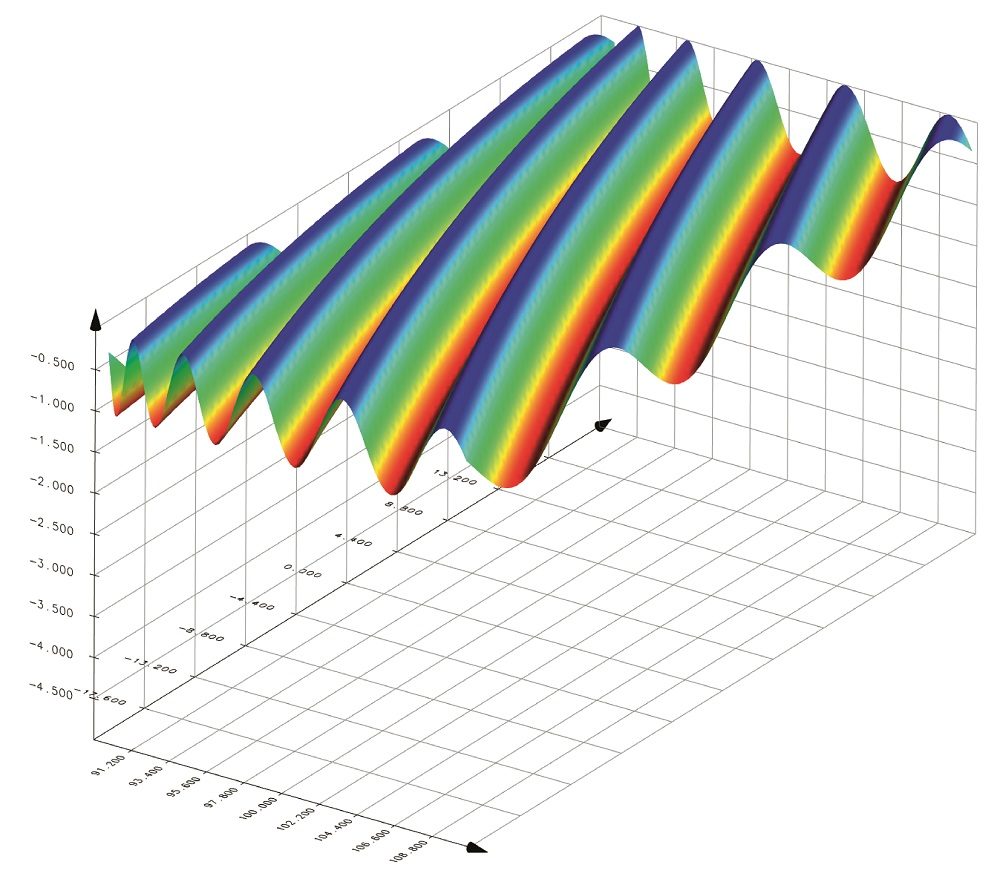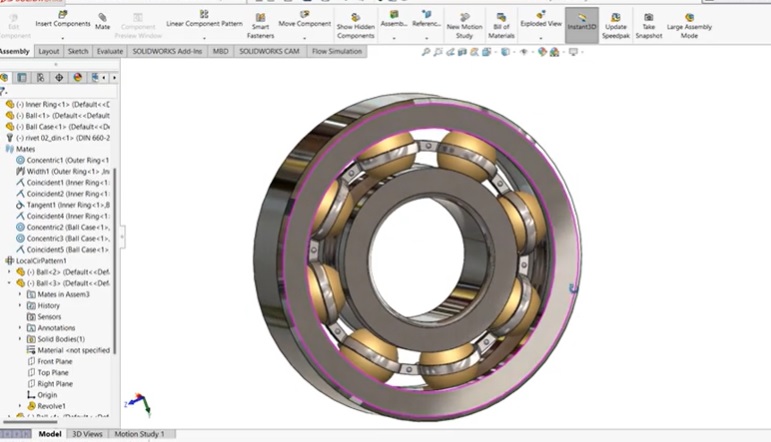KISSsoft Offers Manufacturing Deviations and Flank Waviness Estimations

With the help of KISSsoft, the user can now estimate the influence of manufacturing deviation on the resulting transmission error and excitation force.
For the form deviations in the profile or flank line direction, a sinusoidal wave is applied to the theoretically ideal tooth flank. The waviness can be modified by amplitude, length and phase shift. By specifying an additional angular deviation, the total deviation is simulated.
These deviations can be executed in the profile direction, the width direction or combined. The result is a change in the transmission error, excitation force and other significant influences on vibration excitation. The user can thus test how sensitively a theoretically specified tooth flank modification reacts to manufacturing deviations.
If you would like to learn more about the topic of flank waviness, you have the opportunity to participate in a free 60-minute web demo on Sept. 20, 2022, presented by Dr.-Ing. Ulrich Kissling.
Register here: register.gotowebinar.com/register/6607210986726529808





